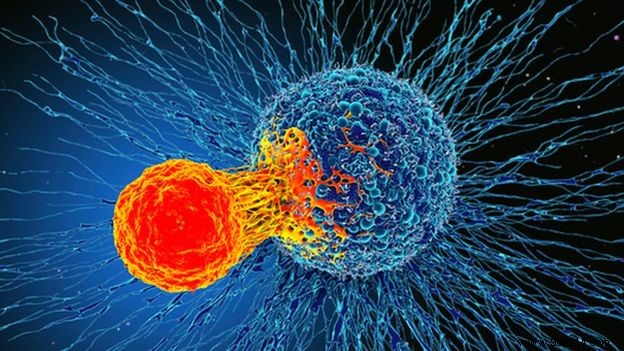Some end-stage head and neck cancer patients who were life-threatening years ago aren't just alive today they are cancer free. These are the promising results of a new immunotherapy drug approach being tested in a phase III clinical trial.
Head and neck cancer is distinct from brain cancer. It mainly affects the tissues of the lips and oral cavity, the larynx, the salivary glands, the nose, the sinuses or the skin of the face. This cancer is responsible for more than 400,000 deaths per year in the world. In a recent study, researchers from the Institute of Cancer Research (ICR) in London and the Royal Marsden NHS Foundation Trust tested a drug approach that had already been shown to work in some patients with cancer of the end-stage kidneys, skin and intestines.
This approach involves two drugs:nivolumab and ipilimumab. The first is an anti-PD-1 drug. It contains an antibody promoting the "anti-tumor effects" of T cells, a type of white blood cell. Ipilimumab, on the other hand, is a monoclonal antibody drug used for adjuvant therapy in patients who have undergone surgery to remove melanomas from the skin and lymph nodes.
For this phase III trial , over 1,000 end-stage head and neck cancer patients . And if the first results are still early and not statistically significant, they are obviously very promising. Interviewed by The Guardian, one of the participants in the study, Barry Ambrose, a 77-year-old man, would have seen his tumor disappear in just eight weeks.
“I had to make bi-weekly trips from Suffolk to the hospital for treatment, but I had virtually no side effects and have been able to continue doing the things I love:sailing, cycling and spending time with my family" , he explains to the English daily.

Not everyone had the same success as Barry Ambrose, but overall, compared to members of the control group treated with conventional chemotherapy, those who benefited from this new drug cocktail lived an average of three months longer . Early results suggest the immunotherapy combination was more effective in patients whose tumors had elevated levels of an immune marker called PD-L1 .
In addition to increasing the chances of long-term survival for patients, the fact that this immunotherapy treatment causes much fewer side effects compared to chemotherapy – which is the standard treatment offered to many patients with advanced cancer – also makes a difference.
The researchers obviously plan to continue follow-up studies, so as to determine with greater confidence whether – and precisely by how much – the therapy improves survival rates in all trial patients.